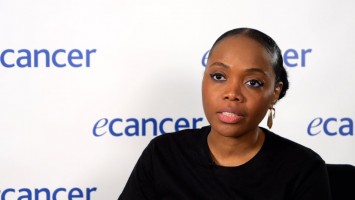The impact of the COVID-19 pandemic on wellbeing has the potential for serious negative consequences on work, home life and patient care. The ESMO Resilience Task Force Collaboration put together a series of global surveys to see how oncologists are reacting, and other oncology professionals across the world, to COVID-19. We did two surveys so far, this is part of a series, and survey one ran from 16th April to 3rd May 2020 and survey two ran from 16th July to 5th August 2020, so for around two weeks in each period. Our key outcomes of interest were wellbeing or risk of distress, burnout and also job performance since COVID-19.
What were the key findings for this investigation?
The ESMO Resilience Task Force survey is the largest COVID-19 survey series of its kind for the oncology workforce. This first survey had 1,520 participants included from 101 countries and two-thirds of the responses were from Europe. What we found was that wellbeing and job performance since COVID-19 varied between countries and were related to the crude COVID-19 mortality rate. So as the crude mortality rate increases, job performance since COVID-19 decreases and the wellbeing index scores increase which suggest higher distress and poorer wellbeing.
Then we looked in more detail with a series of regression analyses looking at whether there were other factors associated with the key outcomes of interest. So for wellbeing, for example, participants with higher levels of perceived self-reported resilience, pleasant working conditions, those who felt valued by their organisation, men, those aged over 40, reported lower distress or better wellbeing. The converse is true so, for example, those under 40 and women reported higher distress. Those working increased hours, who had concerns about training or their career development, self-isolating, reduced clinical trial activity were at higher risk of distress. So, please, I’ll refer you to the presentation for more details regarding other factors related to burnout and job performance.
What was very interesting in this survey series is that we also compared for the key outcomes of interest so far results from survey one and survey two. So in survey two there were 942 participants. Preliminary analyses show that even within a three month interval during the COVID-19 pandemic more participants have reported risk of distress, so 25% versus now 33%, and also feeling burnout, 38% versus 49%. In the latest survey around one in two oncology professionals reported feeling burnt out from their work.
Reassuringly, job performance is improving with 34% versus 51% reporting favourable job performance since COVID-19. What’s of note is that we also did a longitudinal analysis of paired responses of over 250 participants and similar magnitude of findings were found between survey one and two.
Finally, another important point in the results was we asked what participants felt would be helpful to either them or their colleagues going forwards. 86% felt that flexible working would be of moderate or extremely helpful in terms of going forward as well as other items of interest, for example, counselling workshops, practical guides being helpful.
How would the results of this survey impact cancer healthcare now?
Hopefully the importance of wellbeing in order to maintain the workforce and ultimately maintain patient care has been highlighted through this presentation. I very much hope that individuals and organisations feel that addressing wellbeing is a priority. So increasing our understanding of the landscape of oncology professionals’ experiences since COVID-19 is essential in order to do this so that we can make evidence driven decisions on how best to direct attention and resources in order to help oncology professionals going forward as well as organisations. So hopefully the results that we present today, what we presented at the ESMO 2020 congress, taken together with subsequent surveys will help drive the resources and also the action plans that need to be taken, given the feedback we’ve had from oncology healthcare professionals.
The Resilience Task Force, one of the missions and what we’ll be doing in the next few weeks, is putting together what we’ve learned and also some recommendations and resources in order to help during this COVID-19 period but importantly beyond.








